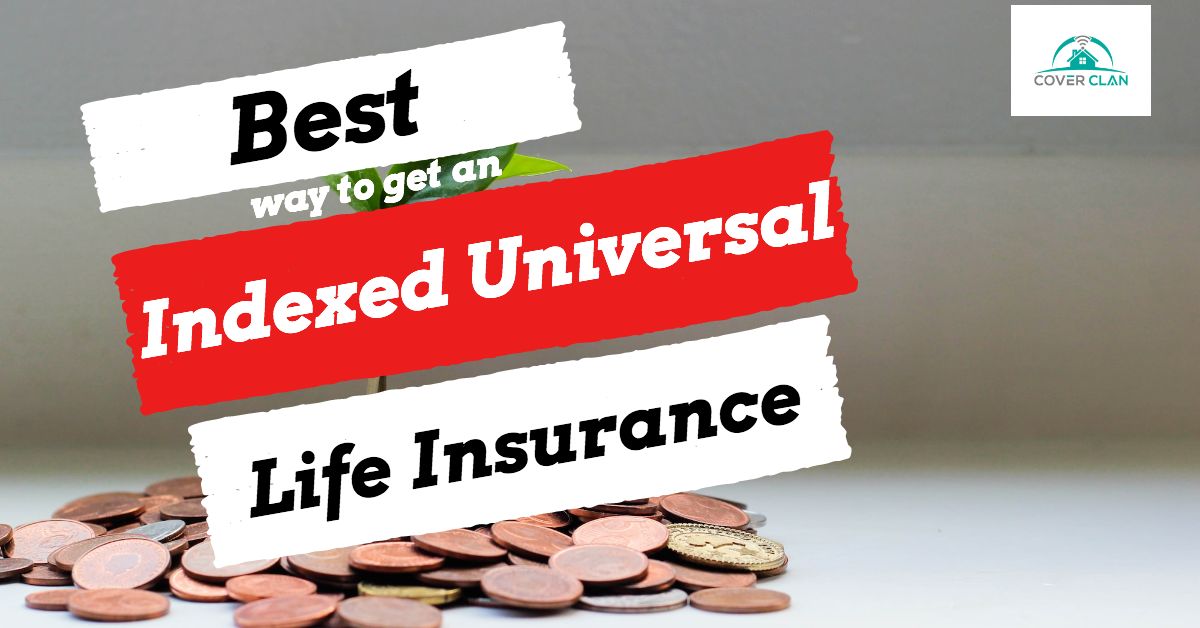All Categories
Featured
Table of Contents
Do they contrast the IUL to something like the Lead Total Amount Stock Market Fund Admiral Shares with no lots, an expense proportion (ER) of 5 basis factors, a turn over proportion of 4.3%, and a phenomenal tax-efficient record of circulations? No, they contrast it to some dreadful proactively managed fund with an 8% load, a 2% ER, an 80% turnover proportion, and an awful record of short-term resources gain circulations.
Shared funds usually make annual taxed distributions to fund owners, also when the worth of their fund has gone down in worth. Shared funds not only need revenue reporting (and the resulting yearly taxes) when the mutual fund is going up in value, however can additionally impose earnings taxes in a year when the fund has actually decreased in value.
That's not how common funds function. You can tax-manage the fund, harvesting losses and gains in order to minimize taxable distributions to the capitalists, however that isn't in some way mosting likely to change the reported return of the fund. Just Bernie Madoff types can do that. IULs avoid myriad tax traps. The ownership of mutual funds might need the common fund proprietor to pay approximated tax obligations.
:max_bytes(150000):strip_icc()/Pros-and-cons-indexed-universal-life-insurance_final-1b83c0fd52154eb69edd47f99ab8927a.png)
IULs are very easy to place so that, at the owner's fatality, the recipient is not subject to either revenue or inheritance tax. The same tax decrease techniques do not work almost also with shared funds. There are countless, typically costly, tax obligation traps associated with the timed trading of shared fund shares, catches that do not use to indexed life insurance policy.
Opportunities aren't very high that you're going to be subject to the AMT due to your common fund circulations if you aren't without them. The rest of this one is half-truths at finest. For circumstances, while it is real that there is no revenue tax obligation because of your heirs when they acquire the earnings of your IUL policy, it is likewise real that there is no revenue tax as a result of your successors when they acquire a common fund in a taxable account from you.
Low Cost Universal Life Insurance
There are better means to prevent estate tax obligation concerns than buying investments with reduced returns. Common funds may create revenue taxation of Social Safety and security benefits.

The development within the IUL is tax-deferred and might be taken as free of tax earnings by means of fundings. The policy proprietor (vs. the mutual fund manager) is in control of his or her reportable income, therefore allowing them to minimize and even remove the taxation of their Social Safety and security benefits. This set is wonderful.
Here's another marginal issue. It holds true if you purchase a shared fund for state $10 per share simply before the circulation day, and it distributes a $0.50 circulation, you are then going to owe tax obligations (possibly 7-10 cents per share) although that you haven't yet had any type of gains.
In the end, it's really about the after-tax return, not how much you pay in taxes. You are mosting likely to pay more in taxes by utilizing a taxable account than if you acquire life insurance policy. You're also possibly going to have more cash after paying those tax obligations. The record-keeping needs for owning mutual funds are considerably a lot more complicated.
With an IUL, one's documents are kept by the insurer, duplicates of yearly statements are mailed to the owner, and distributions (if any kind of) are completed and reported at year end. This is additionally kind of silly. Naturally you should maintain your tax obligation documents in instance of an audit.
Indexed Universal Life Insurance Complaints
Hardly a factor to get life insurance coverage. Mutual funds are commonly part of a decedent's probated estate.
In enhancement, they undergo the delays and costs of probate. The earnings of the IUL policy, on the various other hand, is constantly a non-probate circulation that passes outside of probate straight to one's called beneficiaries, and is for that reason exempt to one's posthumous creditors, unwanted public disclosure, or comparable delays and expenses.
We covered this under # 7, but just to summarize, if you have a taxable common fund account, you have to place it in a revocable trust (or also simpler, make use of the Transfer on Death classification) to avoid probate. Medicaid disqualification and lifetime revenue. An IUL can provide their owners with a stream of revenue for their entire lifetime, no matter of how much time they live.

This is helpful when arranging one's affairs, and converting possessions to income prior to a nursing home confinement. Shared funds can not be converted in a similar fashion, and are usually considered countable Medicaid properties. This is an additional foolish one advocating that poor people (you understand, the ones that need Medicaid, a federal government program for the inadequate, to pay for their assisted living facility) ought to use IUL rather of common funds.
Universal Whole
And life insurance policy looks awful when contrasted fairly versus a pension. Second, individuals who have money to get IUL over and beyond their retirement accounts are going to need to be terrible at handling cash in order to ever before receive Medicaid to pay for their assisted living home expenses.
Chronic and incurable ailment rider. All policies will permit a proprietor's easy access to cash money from their policy, typically waiving any abandonment charges when such people experience a significant health problem, require at-home care, or come to be restricted to a nursing home. Mutual funds do not provide a similar waiver when contingent deferred sales fees still relate to a shared fund account whose proprietor needs to offer some shares to fund the prices of such a keep.
Universal Premium Acceptance Corporation
You get to pay more for that advantage (biker) with an insurance coverage plan. What a good deal! Indexed universal life insurance policy provides fatality advantages to the beneficiaries of the IUL owners, and neither the owner nor the beneficiary can ever lose cash because of a down market. Shared funds provide no such warranties or survivor benefit of any kind of kind.
Currently, ask yourself, do you really need or want a survivor benefit? I absolutely don't need one after I get to financial self-reliance. Do I want one? I suppose if it were affordable enough. Obviously, it isn't low-cost. Typically, a buyer of life insurance policy pays for real expense of the life insurance policy benefit, plus the costs of the policy, plus the earnings of the insurance firm.
No Lapse Life Insurance
I'm not entirely sure why Mr. Morais included the entire "you can't shed cash" once again right here as it was covered fairly well in # 1. He simply wished to repeat the best selling point for these points I suppose. Once more, you don't lose nominal bucks, however you can shed actual dollars, in addition to face major possibility price because of reduced returns.

An indexed universal life insurance policy plan proprietor may exchange their plan for a completely different plan without activating earnings taxes. A shared fund owner can stagnate funds from one shared fund company to an additional without offering his shares at the previous (hence setting off a taxed occasion), and buying brand-new shares at the last, often based on sales charges at both.
While it holds true that you can trade one insurance coverage for another, the reason that people do this is that the very first one is such a dreadful plan that also after purchasing a new one and undergoing the very early, adverse return years, you'll still appear ahead. If they were sold the right plan the very first time, they shouldn't have any kind of need to ever trade it and undergo the early, adverse return years once more.
Latest Posts
Iul Insurance Meaning
Net Payment Cost Index Life Insurance
Universal Life Insurance Vs Term Life